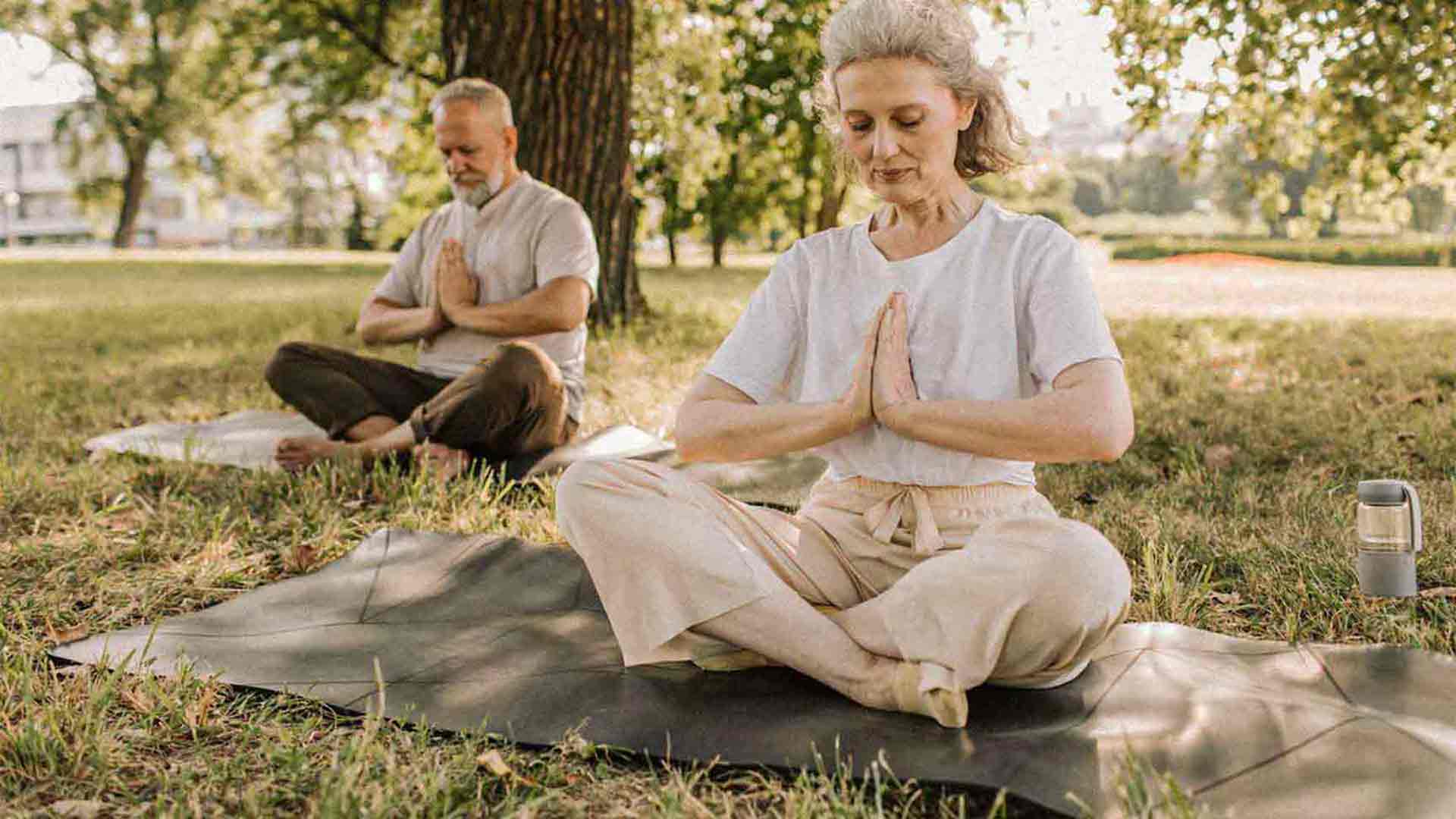Time is our most precious commodity; we can’t speed it up, slow it down, or get it back. Similarly, aging is a biological process we couldn’t fast forward as a teenager and can’t pause in our senior years. But what we can do is take care of ourselves to live our best and help our body to age healthy! Here’s 5 tips for aging and self-care.
#1 Supplement with Collagen
Collagen is the main structural component of your connective tissue, tendons, ligaments and bones. Put simply: it’s the tape that holds you together – but with age, your natural collagen production slows, which can dwindle the health of your bones, joints and even skin. Adding a daily supplement can help this natural aging process, aiding your body to stay healthy and comfortable.1 Collagen can be taken as capsules or powders that’s easily mixed into warm liquids, blended in smoothies, or added to salad dressings or soups!
#2 Vitamin D is your friend
Vitamin D is best known for its role in the metabolism of calcium and phosphorous to assist the formation and maintenance of normal bones. But surprisingly, over 50 genes are actually regulated by Vitamin D, most of which are unrelated to mineral metabolism.2 And emerging research shows Vitamin D also plays a prominent role in your immune system, helping your body to fight infections and harmful pathogens that can make you sick.3
What’s interesting is that you’re able to naturally synthesize Vitamin D from the sunshine. But several factors such as skin color, use of sunscreen, UV strength, the time of day, season and geographic location can affect how much you get from the sun. So, if you regularly wear SPF, live in a cloudy area or during the winter months – taking a supplement can help ensure your vitamin D levels are within a healthy range.
#3 Eat your prunes
When you think of prunes, what comes to mind? Probably: “oh that’s good for constipation.” While it’s true that prunes are good for your gut, but they also support your bone health as well. Prunes are rich in phenolic acid, flavonoids and carotenoids – these are compounds that are beneficial to your bone health because they help to support the production of new bone cells and breakdown of old bone cells.4 Think of this as an exfoliant for your bones – exfoliation helps remove old dull skin, to make room for new skin.
In a similar way, the compounds within prunes help shed old bone cells so new ones can grow! It’s best to eat about 10 prunes per day to support bone health. While this might seem like a lot, but eating a couple alongside your meals is a great way to get a boost of extra nutrients throughout your day.
#4 Walk after each meal of the day
It’s not surprising that exercise offers a host of benefits. It helps relieve stress, improves sleeps, promotes healthy joints, muscles, digestion and heart health. In fact, simply just walking for 15 minutes after eating your meals can significantly improve your heart health according to research.5,6
If that feels like a lot, try starting off slow by just walking after dinner… once you’ve nailed that and want to up your exercise, you can walk after lunch too! Don’t like walking alone? Walk with a friend or start a neighborhood walking club with your friends. Or you can also multi-task and call friends or families during your walks.
#5 Eat your Protein
Protein isn’t just vital for the people who want to gain muscle – protein is essential for maintaining our muscles! With age, you naturally lose muscle mass so it’s incredibly important to replenish stores and consume a protein-rich diet. High protein foods include: chicken, beef, turkey, fish, eggs, dairy, or plant-based sources such as beans or legumes!
Not only does protein support your muscles and bones, but animal protein also contains Vitamin B12, an essential vitamin. B12 provides your internal cells with energy and is needed for red blood cell production. But with age, your body isn’t able to absorb B12 as effectively, it’s important to keep up your protein intake or add a supplement to your diet.
Takeaway:
While there’s nothing that we can do to stop ourselves from aging, there are several steps we can take to help us stay healthy and age with grace! This involves taking care of yourself by fueling your body with adequate nutrition and moving your body regularly with exercise.
For brain health tips, read 5 tips to keep your brain healthy
About Hayley
Hayley is a Licensed Registered Dietitian Nutritionist (RDN) with a Bachelor of Science in Dietetics from Florida State University and a Master of Science in Dietetics from the University of Rhode Island. Hayley is dedicated to empowering individuals to achieve their nutritional goals through evidence-based practices.
Interested in supplements, but not sure where to start? Reach out to one of our experts, or take our free nutrition assessment, to learn exactly what nutrients would work best for your diet and lifestyle.
*These statements have not been evaluated by the Food and Drug Administration. This product is not intended to diagnose, treat, cure, or prevent any disease.
This information is not intended as a substitute for the advice provided by your physician or other healthcare professional, or any information contained on or in any product label or packaging. Do not use the information from this article for diagnosing or treating a health problem or disease, or prescribing medication or other treatment. Always speak with your physician or other healthcare professional before taking any medication or nutritional, herbal, or homeopathic supplement, or using any treatment for a health problem. If you have or suspect that you have a medical problem, contact your health care provider promptly. Do not disregard professional medical advice or delay in seeking professional advice because of something you have read in this article.

